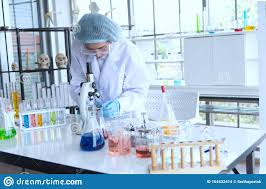Services
Polycystic Ovarian Syndrome Treatment
Polycystic Ovarian Syndrome Treatment is 100% done at Disha Arogya Dham
Introduction
Polycystic Ovarian Syndrome (PCOS) is a common hormonal disorder affecting women’s health worldwide. This condition shows up through various symptoms and complications, such as:
- Irregular periods
- Ovarian cysts
- Weight changes
- Infertility
These symptoms not only affect physical health but also mental well-being, making effective treatment crucial.
PCOS can lead to long-term health issues if left unmanaged, emphasizing the importance of seeking proper care. Effective management of PCOS not only alleviates symptoms but also significantly improves quality of life.
Disha Arogya Dham, a renowned Ayurvedic and Naturopathy clinic in India, specializes in the holistic treatment of PCOS. The center is dedicated to offering comprehensive care tailored to individual needs, ensuring that every aspect of this condition is addressed naturally and effectively.
Polycystic Ovarian Syndrome Treatment is 100% done at Disha Arogya Dham using natural treatments derived from Ayurvedic principles, highlighting their commitment to holistic healing and wellness.
Understanding Polycystic Ovarian Syndrome (PCOS)
Symptoms of Polycystic Ovarian Disease
Individuals with PCOS often experience a range of symptoms that can significantly impact their quality of life. Common symptoms include:
- Irregular Periods: One of the most common symptoms, irregular menstrual cycles, can include infrequent, prolonged, or missed periods.
- Ovarian Cysts: Multiple small cysts on the ovaries are a key feature of PCOS, visible through ultrasound.
- Weight Changes: Many individuals with PCOS struggle with weight gain and find it hard to lose weight.
- Hair Thinning and Acne: High levels of male hormones can cause male-pattern baldness and severe acne.
- Hirsutism: Unwanted hair growth on the face and body is another common symptom due to hormonal imbalances.
Causes of PCOD
Understanding the causes of PCOD is crucial for effective management. The primary factors include:
- Hormonal Imbalances: Elevated male hormones disrupt normal ovarian function, leading to symptoms such as hirsutism and acne.
- Insulin Resistance: Many individuals with PCOS show insulin resistance, which contributes to increased male hormone production and weight gain.
- Genetic Factors: A family history of PCOS can increase the likelihood of developing the condition.

Comprehensive Treatment at Disha Arogya Dham
Disha Arogya Dham offers a tailored treatment package specifically designed for managing PCOS. This comprehensive approach includes:
- Ayurvedic Treatment for Infertility: Using herbal supplements and natural remedies to balance hormones and improve reproductive health.
- Lifestyle Modifications: Recommendations for dietary changes and physical activity to address insulin resistance and weight management.
- Holistic Therapies: Incorporating yoga, meditation, and stress management techniques to promote overall well-being.
The clinic’s integrative approach aims to treat not just the symptoms but also the underlying causes of PCOS, providing a pathway towards long-term health benefits.
Holistic Approach to Treating PCOS at Disha Arogya Dham
Ayurvedic Principles in Managing PCOS
Ayurveda, an ancient system of medicine, emphasizes treating the root cause of health issues rather than just alleviating symptoms. When it comes to managing Polycystic Ovarian Syndrome (PCOS), Ayurveda focuses on restoring balance within the body. This approach is rooted in the concept of Doshas—Vata, Pitta, and Kapha—that govern various physiological functions.
Restoring Balance
For individuals with PCOS, an imbalance in these Doshas often results in hormonal disruptions and metabolic challenges. Ayurvedic medicine for PCOD aims to:
- Detoxify the Body: Through practices like Panchakarma, Ayurveda helps eliminate toxins that contribute to hormonal imbalances.
- Rebalance Hormones: Herbal formulations help stabilize hormone levels, addressing irregular periods and other symptoms.
- Enhance Digestion and Metabolism: By improving digestive health, Ayurveda supports better nutrient absorption and weight management.

Role of Herbal Supplements and Natural Remedies
Herbal supplements play a pivotal role in Ayurvedic treatment for PCOS. Some commonly used herbs include:
- Ashwagandha: Known for its adaptogenic properties, this herb helps reduce stress levels, which can exacerbate PCOS symptoms.
- Shatavari: This herb supports reproductive health and balances female hormones.
- Cinnamon: Effective in improving insulin sensitivity, cinnamon can help manage blood sugar levels.
Natural remedies for PCOS extend beyond herbal supplements. Lifestyle modifications are equally crucial:
- Dietary Adjustments: Incorporating a diet rich in whole grains, fruits, vegetables, and lean proteins can help manage weight and improve insulin resistance.
- Regular Exercise: Physical activity aids in maintaining a healthy weight and reducing anxiety.
- Stress Management: Techniques like yoga and meditation are recommended to lower stress levels.
Comprehensive Care at Disha Arogya Dham
At Disha Arogya Dham, the holistic approach combines these Ayurvedic principles with personalized care plans. The treatment package includes:
- Detailed consultation to understand individual Dosha imbalances
- Customized herbal formulations tailored to specific needs
- Guidance on dietary practices that align with Ayurvedic principles
- Recommendations for lifestyle changes including exercise and stress management techniques
This integrated approach ensures that each patient receives comprehensive care aimed at not just managing but potentially reversing the symptoms of PCOS.
Dietary Considerations for Managing PCOS Symptoms
A balanced diet plays a crucial role in managing the symptoms of Polycystic Ovarian Syndrome. The right dietary choices can significantly influence your hormonal balance and overall well-being. Here are some essential considerations:
Importance of a Balanced Diet
Maintaining stable blood sugar levels is crucial for individuals with PCOS, as insulin resistance is a common issue. A balanced diet helps to:
Recommended Foods and Dietary Changes
Certain foods can help in managing the symptoms effectively:
- High-Fiber Foods: Incorporate vegetables, fruits, legumes, and whole grains to improve digestion and keep you full longer.
- Lean Proteins: Opt for lean meat, fish, eggs, and plant-based proteins like tofu and legumes.
- Anti-inflammatory Foods: Include berries, nuts, olive oil, tomatoes, and leafy greens to reduce inflammation.
- Low Glycemic Index (GI) Foods: Choose foods like whole grains, legumes, nuts, seeds, fruits, and non-starchy vegetables that have a low GI to prevent blood sugar spikes.
Dietary Changes
- Avoid Refined Carbs: Cut down on white bread, pastries, sugary snacks and drinks.
- Limit Dairy Intake: Some studies suggest that reducing dairy can help manage symptoms.
- Healthy Fats: Incorporate sources like avocados, nuts, seeds, and olive oil into your diet.
The diet for Polycystic Ovarian Syndrome should be personalized according to individual needs. Disha Arogya Dham offers tailored dietary plans as part of their comprehensive treatment package for optimal results.
Addressing Infertility Related to PCOS at Disha Arogya Dham
Polycystic Ovarian Syndrome (PCOS) is a significant contributor to infertility issues faced by many women. Hormonal imbalances and insulin resistance, common in PCOS, disrupt ovulation and lead to challenges in conceiving. Understanding this connection is vital for effective treatment.
Disha Arogya Dham offers specialized treatments tailored to improve fertility outcomes for women with PCOS. The clinic employs a holistic approach rooted in Ayurvedic principles, focusing on natural remedies and lifestyle adjustments. Key aspects of their treatment plan include:
- Herbal Supplements: Utilization of specific herbs known for their reproductive health benefits helps in regulating menstrual cycles and promoting ovulation.
- Dietary Changes: Emphasis on a balanced diet rich in essential nutrients supports hormonal balance and enhances fertility.
- Lifestyle Modifications: Recommendations for regular exercise, stress management techniques, and adequate sleep contribute to overall well-being and improved reproductive health.
- Detoxification Therapies: By incorporating Panchakarma and other detoxification procedures, which cleanse the body of toxins that can negatively impact hormonal function.
By integrating these natural remedies for infertility related to PCOS, along with a comprehensive Ayurvedic treatment approach, Disha Arogya Dham provides care aimed at addressing the root causes of infertility, thereby enhancing the chances of conception for women affected by this condition.
Clinical Trials and Research Advancements in PCOD Treatment
Ongoing research and clinical trials are crucial for improving our understanding and treatment of Polycystic Ovarian Disorder (PCOD). These studies aim to find effective treatments for PCOS, giving hope to those affected by this condition.
Key Areas of Focus
Current clinical trials on PCOD treatment emphasize several areas:
- Hormonal Therapies: Investigating new medications that can effectively balance hormone levels.
- Insulin Sensitizers: Exploring drugs that improve insulin resistance, a common issue in PCOS patients.
- Natural Remedies: Examining the efficacy of various herbal supplements and Ayurvedic treatments.
- Lifestyle Interventions: Assessing the impact of diet and exercise modifications on symptom management.

Notable Studies
Recent research has highlighted promising results from integrating holistic approaches with conventional treatments. For instance, a study on Ayurvedic formulations demonstrated significant improvement in menstrual regularity and reduction in ovarian cysts. Another trial focused on insulin-sensitizing agents showed potential in reducing androgen levels, thereby alleviating symptoms like acne and hair thinning.
Participation Opportunities
For those interested, participating in clinical trials offers a chance to access cutting-edge treatments while contributing to scientific knowledge. Clinics like Disha Arogya Dham often collaborate with research institutions to bring these opportunities to their patients, ensuring they benefit from the latest advancements in PCOD treatment.
Community Involvement and Support Initiatives at Disha Arogya Dham
Disha Arogya Dham extends beyond individual treatment, emphasizing community involvement and education. The clinic offers training programs related to Ayurveda and Naturopathy for those looking to pursue a career in these holistic fields. These programs are comprehensive, covering various aspects of Ayurvedic medicine, herbal treatments, and lifestyle practices essential for managing health conditions like PCOS.
Training Programs Offered:
- Ayurvedic Medicine: In-depth courses on the principles and applications of Ayurvedic treatments.
- Naturopathy: Training on natural healing techniques and their integration with Ayurveda.
- Herbal Remedies: Detailed sessions on identifying, preparing, and using herbal supplements effectively.
Community health initiatives play a crucial role in promoting awareness about PCOS management through holistic approaches. By conducting workshops, seminars, and public health campaigns, Disha Arogya Dham educates the community about the importance of lifestyle changes, dietary adjustments, and natural treatments in managing PCOS symptoms.
“Polycystic Ovarian Syndrome Treatment is 100% done at Disha Arogya Dham,” emphasizes a holistic approach that integrates community support with personalized care.
The clinic’s commitment to community involvement helps create a supportive environment for individuals struggling with PCOS, encouraging them to seek effective solutions without relying solely on conventional medical treatments.
Embracing a Holistic Approach to Managing Polycystic Ovarian Syndrome (PCOS) with Disha Arogya Dham’s Expertise
Embracing a holistic approach to managing PCOS can significantly improve your quality of life. Disha Arogya Dham stands out for its expertise in providing holistic healing benefits of Ayurvedic treatments for PCOS. The clinic’s comprehensive package focuses on restoring balance within the body through herbal supplements, natural remedies, and lifestyle modifications.
If you are struggling with PCOS, there is hope. The specialized treatments at Disha Arogya Dham offer effective solutions tailored to manage symptoms and improve fertility outcomes.
Polycystic Ovarian Syndrome Treatment is 100% done at Disha Arogya Dham, making it a trusted destination for those seeking relief and improved well-being.
FAQs (Frequently Asked Questions)
What is Polycystic Ovarian Syndrome (PCOS)?
Polycystic Ovarian Syndrome (PCOS) is a common hormonal disorder that affects women’s health, leading to various symptoms such as irregular periods, ovarian cysts, weight changes, hair thinning, and acne. It can also result in complications like infertility.
How does Disha Arogya Dham approach the treatment of PCOS?
Disha Arogya Dham offers a holistic treatment for PCOS, specializing in Ayurvedic and Naturopathy methods. The clinic focuses on restoring balance within the body through herbal supplements, natural remedies, and lifestyle modifications tailored specifically for managing PCOS.
What dietary considerations should be taken into account for managing PCOS symptoms?
A balanced diet is crucial for managing PCOS symptoms. Recommended dietary changes include incorporating foods that support hormonal balance and overall well-being while avoiding processed foods and sugars that may exacerbate symptoms.
Is there a connection between PCOS and infertility?
Yes, many individuals with PCOS experience infertility issues due to hormonal imbalances. Disha Arogya Dham provides specific treatments aimed at improving fertility outcomes for women struggling with this condition.
Are there any ongoing research studies related to PCOD treatment?
Yes, there are ongoing clinical trials and research studies focused on exploring new treatment options for managing Polycystic Ovarian Disease (PCOD). These studies aim to find effective treatments that can enhance the quality of life for those affected by PCOS.
How can community involvement help in managing PCOS?
Community involvement plays a significant role in promoting awareness about PCOS management through holistic approaches. Disha Arogya Dham offers training programs related to Ayurveda and engages in community health initiatives to educate individuals about effective management strategies.
Discover more from DAD Ayurveda
Subscribe to get the latest posts sent to your email.











